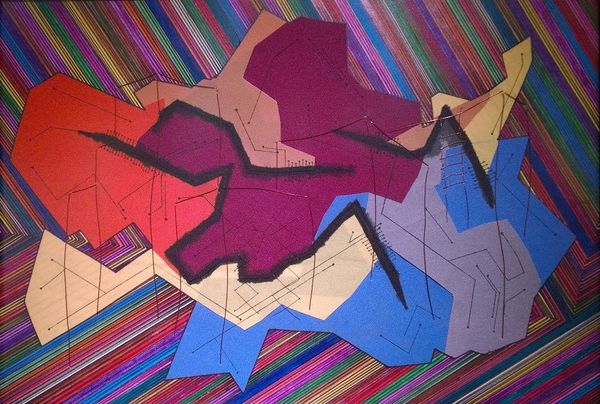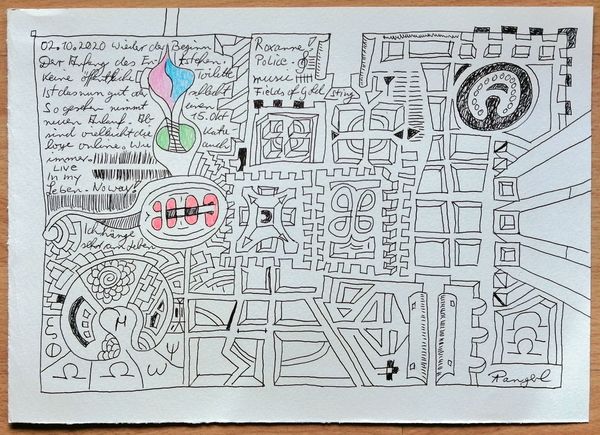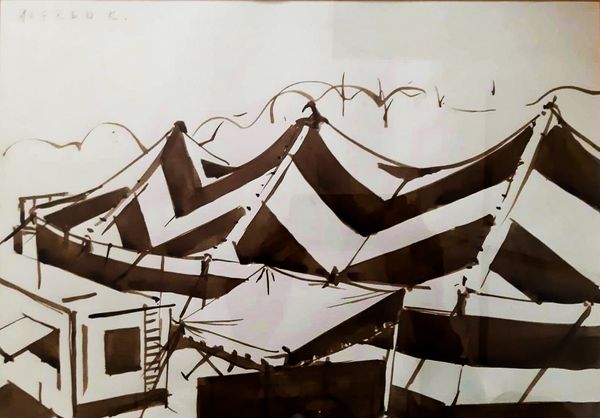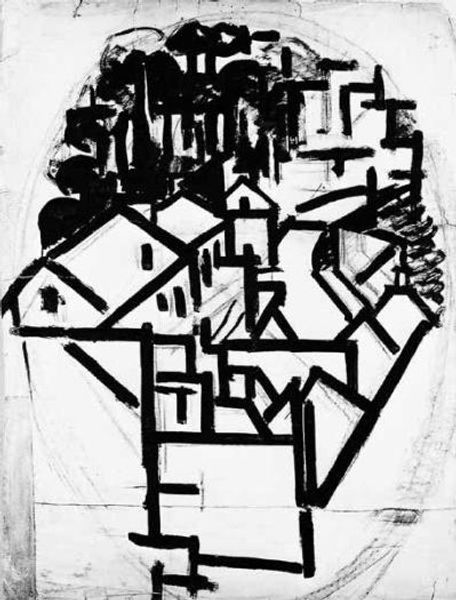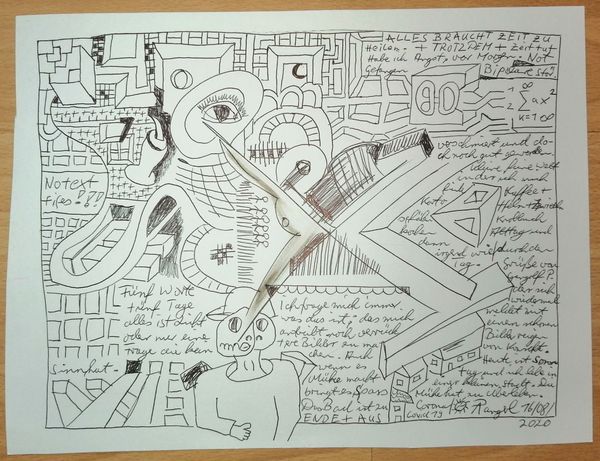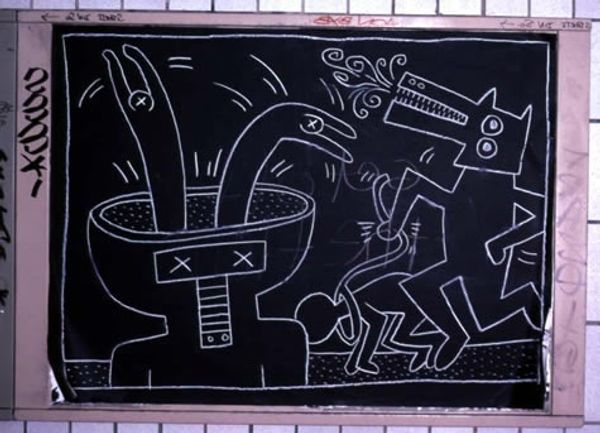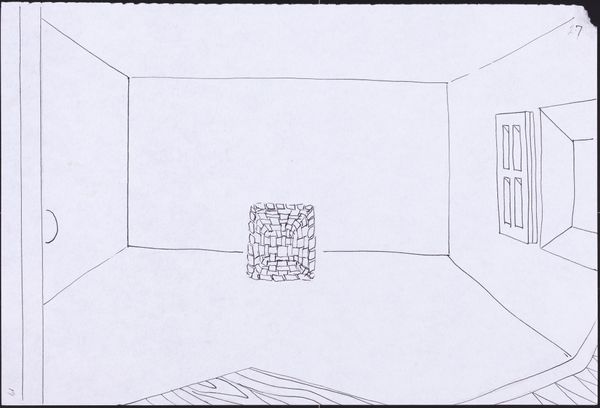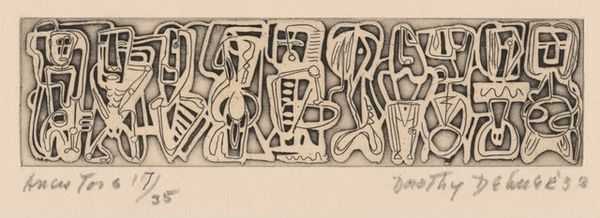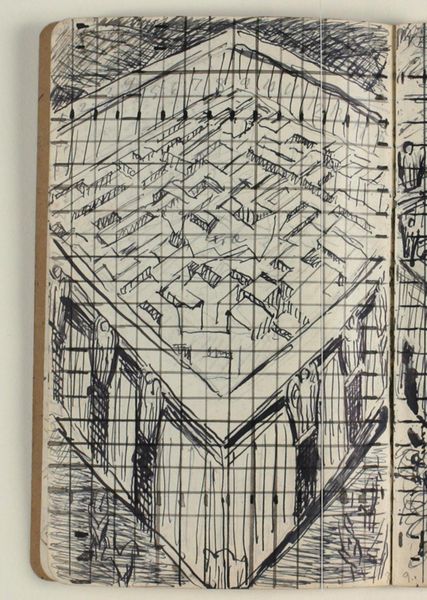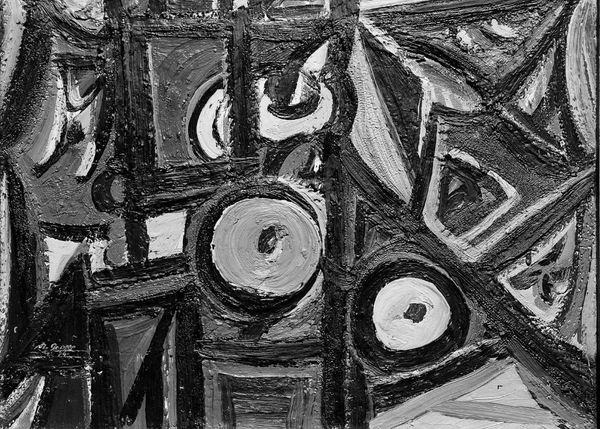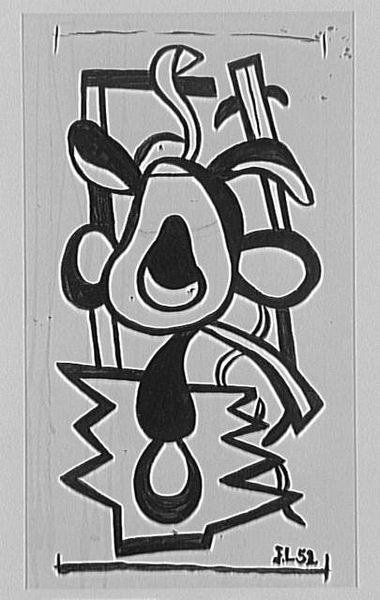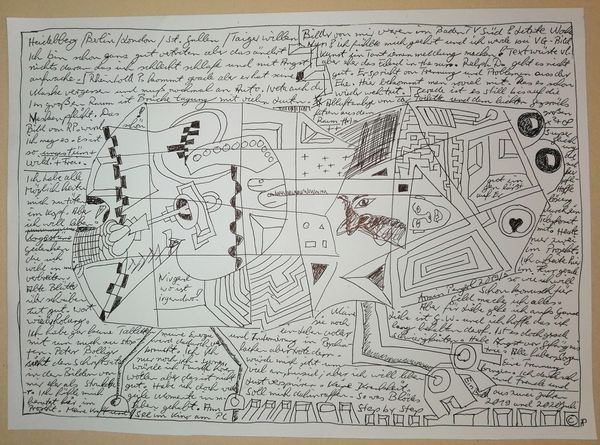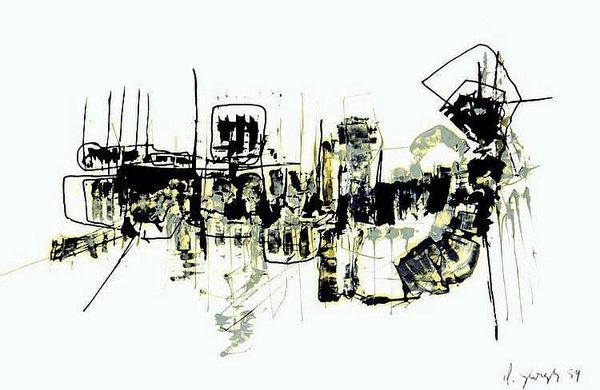
The 'Youth' Panel in the Lobby of the 'Iskra' Palace of Culture of the Zhdaniv Heavy Machinery Plant (now 'Azovmash', Mariupol) 1966
0:00
0:00
mosaic, public-art
#
public art
#
mosaic
#
narrative-art
#
graffiti art
#
socialist-realism
#
public-art
#
figuration
#
geometric
Copyright: Valerii Lamakh,Fair Use
Editor: This is a photograph of a mosaic called 'The 'Youth' Panel in the Lobby of the 'Iskra' Palace of Culture...' created in 1966 by Valerii Lamakh. It appears to be constructed with tiles and features a very interesting composition. What strikes me most is the bold outlining and geometric foundation underlying the shapes of the figures. How do you interpret this work, focusing on the stylistic elements? Curator: Observe how the shapes interact. The geometric arrangement forms a rhythmic backdrop. Lamakh orchestrates balance by positioning stylized human figures against this abstract ground. Do you perceive a deliberate contrast? Editor: Absolutely! The figures appear rather simple, but set against that chaotic background they almost seem to float, detached. What is your perspective on the tension between figure and ground? Curator: The piece creates a tension between representation and pure form. The stylized figures, seemingly grounded in representation, are flattened and simplified, reduced to almost geometric components. The mosaic structure enforces that two-dimensionality, reducing depth and emphasizing surface pattern. The material itself reinforces this interplay: The rigid grid creates a surface emphasizing pattern rather than narrative depth. Editor: That’s fascinating! I was thinking about the overall flatness detracting from any sort of spatial illusion. I hadn’t considered how critical the raw materials are in delivering that flatness. Curator: It’s by no accident that we notice the surface; it’s a conscious arrangement, reflecting on fundamental properties and materiality of the mosaic and tesserae. The artwork then directs our focus inwards, toward visual construction instead of historical understanding. Editor: This has truly reshaped my perspective; I am finding myself thinking about the underlying geometry more. Curator: Yes, exactly, recognizing these formal relationships enhances our experience.
Comments
No comments
Be the first to comment and join the conversation on the ultimate creative platform.

